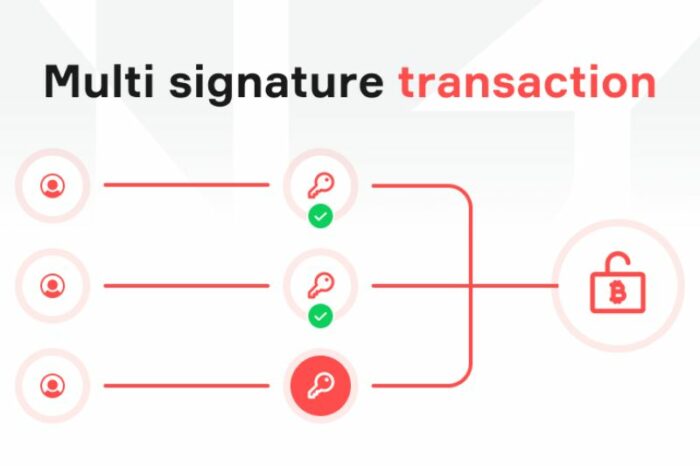In the world of cryptocurrency, security is paramount. With the increasing popularity and value of Bitcoin, it is crucial to protect digital assets from theft and unauthorized access. One innovative solution that addresses these concerns is the use of multisignature (multisig) wallets. In this article, we will delve into the concept of multisig wallets and explore their role in securing Bitcoin transactions. In addition, if you are looking for a free and easy-to-use website that helps people find an education company to start learning about investments, you may visit this Web.
What is a Multisignature (Multisig) Wallet?
A multisignature wallet, often referred to as a multisig wallet, is a type of cryptocurrency wallet that requires multiple signatures or approvals to authorize a transaction. Unlike a traditional wallet that relies on a single private key, multisig wallets involve multiple participants, each possessing a unique private key.
How Does It Work?
When initiating a transaction from a multisig wallet, a predetermined number of signatures must be provided to validate and execute the transaction. For example, a 2-of-3 multisig wallet requires at least two out of three participants to sign off on a transaction before it can be finalized and broadcasted to the Bitcoin network.
Benefits of Multisig Wallets
Multisignature wallets offer several advantages over traditional wallets:
- Enhanced security: By requiring multiple signatures, multisig wallets provide an additional layer of security, reducing the risk of unauthorized transactions and potential theft.
- Shared control: Multisig wallets are particularly useful when multiple individuals or entities need to manage and control a single wallet, such as in a business or joint account scenario.
- Trustless transactions: With multisig wallets, participants can engage in transactions without relying on a central authority or third party, fostering trust and decentralization.
Enhanced Security in Bitcoin Transactions
Single Signature vs. Multisignature Transactions
In traditional Bitcoin transactions, a single signature is sufficient to authorize and broadcast a transaction. However, this simplicity comes with inherent security risks. If a malicious actor gains access to the private key, they can easily compromise the wallet and transfer the funds.
On the other hand, multisignature transactions require a collaborative effort, significantly reducing the likelihood of unauthorized access. Even if one participant’s private key is compromised, the transaction remains secure as additional signatures are still required.
Challenges and Limitations of Multisignature Wallets
While multisignature wallets offer enhanced security, they also come with certain challenges and limitations:
- Complexity and Learning Curve: The setup and management of multisig wallets can be more complex compared to traditional wallets. Participants must understand the process of signing transactions and managing their private keys.
- Potential Single Points of Failure: Multisig wallets still rely on the security of each participant’s private key. If one participant loses their key or becomes unavailable, it may create difficulties in accessing or transacting with the wallet.
- Cost and Technical Requirements: Depending on the wallet provider and the number of signatures required, there may be additional costs associated with setting up and using a multisig wallet. Additionally, participants must have the technical knowledge and resources to manage their private keys and ensure secure access to the wallet.
- Limited Adoption and Compatibility: Although multisignature wallets have gained traction in the cryptocurrency space, they are not yet widely adopted across all platforms and services. Compatibility issues may arise when interacting with wallets or services that do not support multisig functionality.
Future Developments in Multisignature Wallets
Multisignature wallets continue to evolve, and future developments aim to enhance their functionality and compatibility with emerging technologies. Some potential developments include:
- Integration with Smart Contracts: Smart contracts have gained significant attention in the blockchain space. Integrating multisig wallets with smart contracts would allow for complex transaction conditions and automated execution, further streamlining secure transactions.
- Interoperability with Different Blockchains: As the blockchain ecosystem expands, interoperability between different blockchains becomes increasingly important. Future developments may focus on enabling multisig functionality across multiple blockchain networks, allowing for secure cross-chain transactions.
Conclusion
Multisignature (multisig) wallets provide an advanced level of security and control for Bitcoin transactions. By requiring multiple signatures, they mitigate the risk of unauthorized access and provide shared control over funds. Multisig wallets find applications in various scenarios, including businesses, joint accounts, escrow services, and nonprofits. While they offer improved security, they also come with challenges such as complexity and potential points of failure. Future developments aim to enhance the functionality and interoperability of multisignature wallets, further strengthening their role in securing digital assets.



